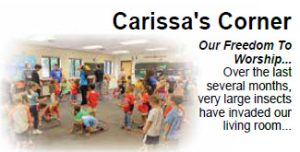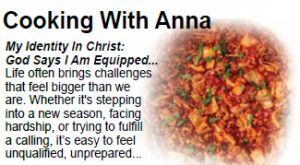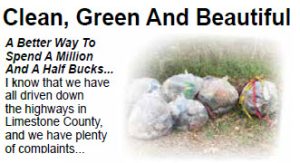By: Mae Lewis
Chloe’s dad wrote letters to his 2-year-old daughter, and posted them on the Forum MEDIUM as “Chloe’s Dad.” He wrote letters of wisdom, advice, and family history for her future self to absorb.
In 2017, he wrote a letter addressing what he had learned about generosity and graciousness, and what he is teaching her is wisdom for all of us.
At first, he shared some of the things we would expect in talking about generosity and graciousness – things like the importance of giving and how it affects the giver, and how it reflects a faith that you are being taken care of…what he calls an “abundance awareness.” Giving generously, he asserts, is “Affirming within yourself that you have the capacity to give. It means you have the state of mind that I am taken care of and have enough to be able to give.”
Another good point he makes: “Of course monetary donations aren’t the only way to give, but I think it sets a solid foundation for generosity. The most lovely and impressive people I have known are those who are generous with their time, their hospitality, and their skills. I’d take these over politeness or superficial niceness any day.”
I agree with him. There have been times that I have needed to call on a friend or a colleague, and they have given to me of their precious time, listening to my woes or helping me to solve a problem. Maybe they were just generous with advice. Either way, I have grown to appreciate that generosity is not limited to money.
Others can be generous in spirit, reserving judgment and personal feelings in an uncomfortable situation. The human spirit has an ability to see the discomfort in another. I can think of many times that a kind word from a stranger or an intervention at a chance moment diffused a dangerous or difficult situation. If you have the power to bring peace, that is an area where you can be generous.
But with all of these areas of generosity, Chloe’s dad went on to make a point that I feel is more important than learning to give: The complement to generosity is receiving. “It takes a certain graciousness to receive another’s generosity well and it’s a skill that (for some) takes some developing.” We must learn to be gracious receivers.
“Receiving graciously is, in my opinion, as important as being generous. I used to feel embarrassed to receive. In some cases, I would want to make sure there’s equity with others, that I’m not somehow being unfairly favoured. In others, I would feel awkward and so not really respond at all. Or I would respond with how I might be able to pay back the generosity at some future time.
“Here’s what I’ve learned:
- Look the person in the eye and say “Thank you” with a genuine smile that lets them know that their generosity means something to me. It’s about connecting and acknowledging the value within the gift.
- Drop any thoughts about whether I deserve it or how I might repay in the future. So, in the moment, be genuinely grateful. And enjoy the gift. How better could I respect the person who’s giving and allow their gift to give its full benefit?
- Know that in some cases I will be able to repay the kindness, but that won’t always be the case. And not to worry about that. (Sometimes people will give you more than you can ever repay them, and that’s called “paying it forward.” Someday, you can do the same for someone else.)
“In the end it all comes down to people and time. Being able to give to others through gifts, helping out, making things better, cooking, hosting, or whatever it is feels good and lets us enjoy the time together. Being able to receive graciously respects them, makes them feel good about giving, and also frees us all to enjoy time together.”
Consider, what are the things that you have an abundance of? If you don’t already, I challenge you to practice “abundance awareness” in your life, and be aware of all of the ways that you have the capacity to give, and graciously receive, more good in the world.
By: Mae Lewis









 June 20, 2025
June 20, 2025



